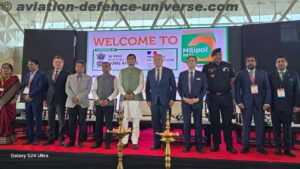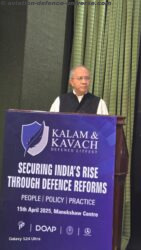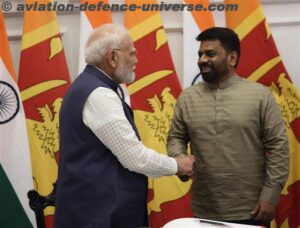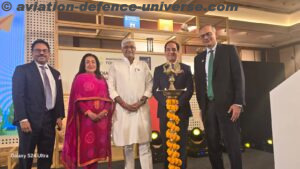
- Permanent Representative of India to the United Nations feels situation spiralling out of control
- Status quo to be maintained
By Team ADU
New Delhi/ Pune/ New York. 16 May 2021. Against the backdrop of chaos in the Middle East, UNSC convened a tele-conference, where Secretary-General António Guterres called for the cessation of “this senseless cycle of bloodshed”. Multiple nations expressed their opinions, including the Palestinian Minister for Foreign Affairs, Riad Malki, who asserted that “Jerusalem is not for sale” and “Palestinian heritage is etched into every stone, street, and ally in the city”.
Before we continue it is imperative to understand India’s historical growth in creating a balanced approach to Israel-Palestine crisis. It may be recalled that India was the first non-Arab country to recognize the Palestine Liberation Organisation’s authority as “the sole legitimate representative of the Palestinian people.” A PLO office was set up in the Indian capital in 1975, with full diplomatic relations established in March 1980. India recognized Palestine’s statehood following declaration on 18 November 1988, although relations between India and PLO were first established in 1974.
India opened a Representative Office in Gaza on 25 June 1996 which was later shifted to Ramallah in 2003. Indian support was said to extend to “consistent and unwavering support” on the Palestinian issue, where it shared the perception that the question of Palestine is at the core of the Arab–Israeli conflict. India has thus consistently supported the legitimate right of the Palestinian people to a State and the consequent imperative need for a just, comprehensive and lasting peace in the region based on United Nations Security Council resolution 242, 338 and 425, as well as the principle of “Land for Peace.” India has also supported the Madrid Conference of October, 1991.
India participated in the 2007 Annapolis Conference and the consequent donors conference. India’s government noted the direct relevance for India on the issue and favoured the creation of “sovereign, independent, united states of Palestine” asserting that its support for the cause remains unwavered. The then External Affairs Minister, Pranab Mukherjee, briefed the Consultative Committee in his ministry saying, “India’s support to the Palestinian cause has not wavered.” Practically a year later, as a gesture of solidarity with the Palestinian cause, India gifted a piece of prized real estate in the Indian capital’s elite diplomatic enclave for the building of an embassy of the Palestinian National Authority, dedicating the building to the people of Palestine from the people of India. The gift underscored India’s “unwavering solidarity and commitment to an independent Palestine” and was seen by some to balance its growing relations with Israel. On his visit, the PAP said that India had played a great role in West Asia peace process. After the ceremonial reception and a guard of honour at the forecourt of Rashtrapati Bhawan, Abbas said relations between India and Palestine had always been good and that the two countries were making efforts to improve such relations. “You know how good relations we have, between India and Palestine since [the] great Indira Gandhi and [the] great Yasir Arafat. And everyday, it’s improving. We are very glad with the help and the support of the Indian people to the Palestine.” The next day the Indian Prime Minister Manmohan Singh said, “India believes that the solution should be based on the relevant UN Resolutions, the Arab Peace Plan and the Quartet road map resulting in a sovereign, independent, viable and united State of Palestine living within secure and recognised borders, side by side at peace with Israel.
In 2008, the Prime Minister of India also stated that, “We hope to see the realisation of a sovereign, independent, united and viable Palestine, co-existing peacefully with Israel. I have reaffirmed our position on this to President Abbas during our conversation today.” A joint statement also added that “India also called for an end to the expansion of Israeli settlements in occupied Palestine and for an early and significant easing of restrictions on the free movement of persons and goods within Palestine.” India co-sponsored and voted in favour of a UNGA resolution changing Palestine’s observer status from “non-member observer entity” to “non-member observer state” in November 2012.
And on the other hand the warmth of India-Israel relations is not hidden from the world. Despite starting as a non-recogniser of Israel as an independent nation , India in 2021 is a great friend of Israel. India voted against the Partitioning of Palestine plan of 1947 and voted against Israel’s admission to the United Nations in 1949. But on 17 September 1950, India officially recognised the State of Israel. In 1953, Israel was permitted to open a consulate in Bombay (now Mumbai). However, the Nehru government did not want to pursue full diplomatic relations with Israel as it supported the Palestinian cause, and believed that permitting Israel to open an embassy in New Delhi would damage relations with the Arab world. From India’s recognition of Israel in 1950 to the early 1990s, the relationship remained informal in nature. India’s opposition to official diplomatic relations with Israel stemmed from both domestic and foreign considerations. Domestically, politicians in India feared losing the Muslim vote if relations were normalised with Israel. Although there was no formal relationship for several decades, meetings and cooperation took place between both countries Israel also provided India with crucial information during its multiple wars.
After decades of non-aligned and pro-Arab policy, India formally established relations with Israel when it opened an embassy in Tel Aviv in January 1992.Ties between the two nations have flourished since, primarily due to common strategic interests and security threats. At the height of the tension between Israel and Hamas in July 2014, India offered a rhetorical condemnation holding both sides responsible for erupting violence and asked Israel to stop “disproportionate use of force” in Gaza which was read by many as departure from tradition of more vocal supports for the Palestinian cause. The then External Affairs Minister Sushma Swaraj insisted that “there is absolutely no change in India’s policy towards Palestine, which is that we fully support the Palestinian cause while maintaining good relations with Israel. ” clarifying India’s current position on the issue. While that might sound to some like fence-sitting, it is a policy shared by all Indian governments over the past 20 years following the establishment of formal diplomatic relation in 1992. Swaraj, a seasoned parliamentarian, had herself blocked the opposition demand in Rajya Sabha for passing a resolution condemning Israel for 2014 Israel-Gaza conflict by saying that “India has friendly relation with both Israel and Palestine and therefore any such move may impact its friendship negatively”.
Although later in a symbolic gesture India joined others BRICS nations in voting at the United Nations Human Rights Council for a probe into the alleged human rights violation in Gaza, which generated mixed response among media and analysts in India. When the UNHRC report alleging that Israel had committed war crimes was tabled for vote, India abstained from voting, one of five countries to do so. 41 nations voted in favour, and the United States was the only vote against. Israeli envoy to India Daniel Carmon thanked India for not supporting what he described as “another anti Israel bashing resolution”.
India-Israel relationship has been very close and warm under the premiership of Narendra Modi since 2014. In 2017, he was the first ever Prime Minister of India to visit Israel. India was the largest arms customer of Israel in 2017. Defence relations between the two countries are longstanding. With this background lets view the recent statement of the permanent representative to UN.
India has been worried not only for the two warring factions but also for the West Asian region as a whole. Indian Permanent Representative to the UN Ambassador T.S. Trimurti began his statement by expressing his deep concern regarding the recent violence in Jerusalem. He deemed this meeting to be crucial in light of the sharp deterioration of the security situation. Referring to the grim events, the Ambassador also mentioned the death of Indian citizen Soumya Santosh, who was a caregiver in Ashkelon and was struck by a rocket.
He called for the immediate de-escalation of the situation, and urged both the involved parties to show “extreme restraint” and “refrain from attempts to unilaterally change the existing status-quo”. In emphasizing the importance of Jerusalem’s historic value, he said, “Jerusalem has a special place in hearts of millions of Indians, who visit the city every year. It also houses the Al Zawiyya Al Hindiyya – The Indian Hospice, which is a historic place associated with a great Indian Sufi saint Baba Farid and located inside the Old City.”
The Ambassador concluded his statement by stressing the “the need for immediate resumption of dialogue between Israel and Palestinian authorities”. Finally, once again, he declared India’s stance by asserting support to the “just Palestinian cause” and reiterating India’s unwavering commitment to the two-State solution.
This last sentence of the Permanent Representative makes us recall the in an unprecedented move in 2019, India voted in support of Israel at the UN’s Economic and Social Council (ECOSOC) to deny observer status to a Palestinian human rights organisation named ‘Shahed’. This was the first time India had stood in the favour of Israel, there by taking a step away from its support for the two-state theory for Israel and Palestine.
India and Israel bilateral relationship has been constantly blossoming since they established full diplomatic relations in 1992 after an era each of non-recognition to non-formal ties. Both the nations are democracies surrounded by neighbours which encourage and perpetrate terrorism. So friendship between the two becomes more than a need for military cooperation to strategic imperative.
Now this statement given by Ambassador is smartly drafted. It condemns in point 4 the indiscriminate rocket firings from Gaza targeting the civilian population in Israel but only mentions the retaliatory strikes into Gaza. In point 6 it recalls Indian importance for Jerusalem which houses the Al Zawiyya Al Hindiyya – The Indian Hospice and to maintain historic status-quo at the holy places of Jerusalem, including the Haram al-Sharif/Temple Mount, must be respected. In this he kills two birds with the same stone as the Temple Mount is of great importance to both Isman an d Judaism.
Since 1757 a status quo has been applied for the ruling of the Holy places in Jerusalem. The situation between Jews and Muslims was confirmed in 1919 and Faisal–Weizmann Agreement concluded that: Article V. No regulation nor law shall be made prohibiting or interfering with the free exercise of religion. Article VI. The Mohammedan Holy Places shall be under Mohammedan control. In 1929 tensions around the Western Wall in which Jews were accused of violating the status quo generated riots during which 133 Jews and 110 Arabs were killed. Following the 1948 Arab–Israeli War, the status quo was not respected any more after Jordan took control of the Old City of Jerusalem and Jews were prohibited from visiting their Holy Places in the city.
The Status Quo is an understanding among religious communities with respect to nine shared religious sites in Jerusalem and Bethlehem. Other Holy Places in Israel and Palestine were not deemed subject to the Status Quo because the authorities of one religion or of one community within a religion are in recognized or effective possession.
According to the United Nations Conciliation Commission, the Status Quo applies to nine sites in Jerusalem and Bethlehem, which Cust separates into three categories.
Disputed between Christian denominations
- The Church of the Holy Sepulchre and its dependencies, Jerusalem
- The Deir es-Sultan, on top of the Church of the Holy Sepulchre, Jerusalem
- The Tomb of the Virgin Mary, Jerusalem
- The Church of the Nativity, Bethlehem
- The Chapel of the Milk Grotto, Bethlehem (no records exist)
- The Chapel of the Shepherd’s Field, Bethlehem (no records exist)[11]
Disputed between Christian and Islamic denominations
7. The Chapel of the Ascension, Jerusalem
Disputed between Jewish and Islamic denominations
8. The Western Wall, Jerusalem
9. Rachel’s Tomb, Bethlehem
So the truth is that status quo does not apply to either Al Aqsa Mosque or Haram al-Sharif/Temple Mount nor David’s Tomb and neither the Ladder.
To maintain its stand towards the two-nation-policy Indian looks forward to the “just Palestine solution” and an end to Israeli –Palestine onflict with just the best solution for both the parties. But is it just a utopian solution which will never see the light of the day? Or the crisis needs a more effective United Nations? Million dollar questions with no answers.
Historical Content from open medium


































































































































